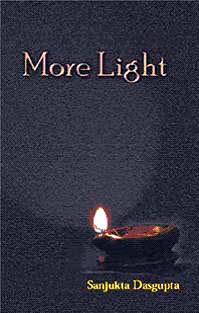Feb 07, 2026
Feb 07, 2026
 In the preface to this book, Sanjukta Dasgupta writes that the defining inspiration behind these poems has been the exuberant spirit of inclusiveness – “to be able to find a home in the world and the world within the precincts of home.” And how true it is in all these fifty poems! The personal and the worldly intertwine to prop each other up. The lament for the sad state of Kolkata’s maidan becomes filled with nostalgia of growing up years, until memory recalls of a poignant comment made by the poet’s father years ago, and thereby turning the dirge for the environment into an elegy for the passage of time. Maidan and memories become at once synonymous. Memories intrude constantly into the present like “the stench of old blood” that infects “the nauseous air.’ Sometimes memories take the form of vultures, reminding of the nightmarish seventies when, among other things painful, the poet had to forego two years of academic study due to political unrest. Often memories come along with the rains, or are evoked while climbing up the stairs, or appear at the sight of a migrant tree – the thirty-year old Araucaria, a Chilean pine.
In the preface to this book, Sanjukta Dasgupta writes that the defining inspiration behind these poems has been the exuberant spirit of inclusiveness – “to be able to find a home in the world and the world within the precincts of home.” And how true it is in all these fifty poems! The personal and the worldly intertwine to prop each other up. The lament for the sad state of Kolkata’s maidan becomes filled with nostalgia of growing up years, until memory recalls of a poignant comment made by the poet’s father years ago, and thereby turning the dirge for the environment into an elegy for the passage of time. Maidan and memories become at once synonymous. Memories intrude constantly into the present like “the stench of old blood” that infects “the nauseous air.’ Sometimes memories take the form of vultures, reminding of the nightmarish seventies when, among other things painful, the poet had to forego two years of academic study due to political unrest. Often memories come along with the rains, or are evoked while climbing up the stairs, or appear at the sight of a migrant tree – the thirty-year old Araucaria, a Chilean pine.
Then there is the world – Vancouver, Oswego – where the compositions continue on seeing first hand what was so long gazed at from a distant shore. But for a wanderer the home in the world is like a sandglass as the shape poem “Home” depicts. The sand/earth, which represents the home, trickles down the sandglass from one place to accumulate at another place as time passes. The reconciliation between space and time is brought about by the metaphor of the mother. The same metaphor of the mother is also seen in the goddess Durga, which heads the series of poems on Hindu deities. The deities are shown to display their mythical characteristics in contemporary settings without any paradox.
The title poem is an invocation to the muse where again Hindu mythology appears but this time side-by-side Greek legend – “Narcotized by the alluring of lotus” – and Biblical exegesis – “serpent-free world wide Eden.” It shows how different thoughts strangely unite in the poet’s consciousness to give birth to her poems. The process of poetic creation has been variously described by the poet - sometimes like sprouting of roots and shoots, sometimes like flowing of streams, sometimes like a waterfall, and sometimes like an eruption. In “My Poems” the poet writes that her poem “Is a teardrop congealed / Concealed like a drop of pearl / Within the moist sun-shy oyster” but once “the words reach the world”, there is a “flutter of butterfly wings” and then the poems “No longer remain just mine.” This is how poetry connects the mind and the world. And this is precisely what each poem of Sanjukta Dasgupta’s fourth volume of poems does.
24-May-2009
More by : Dr. Amit Shankar Saha